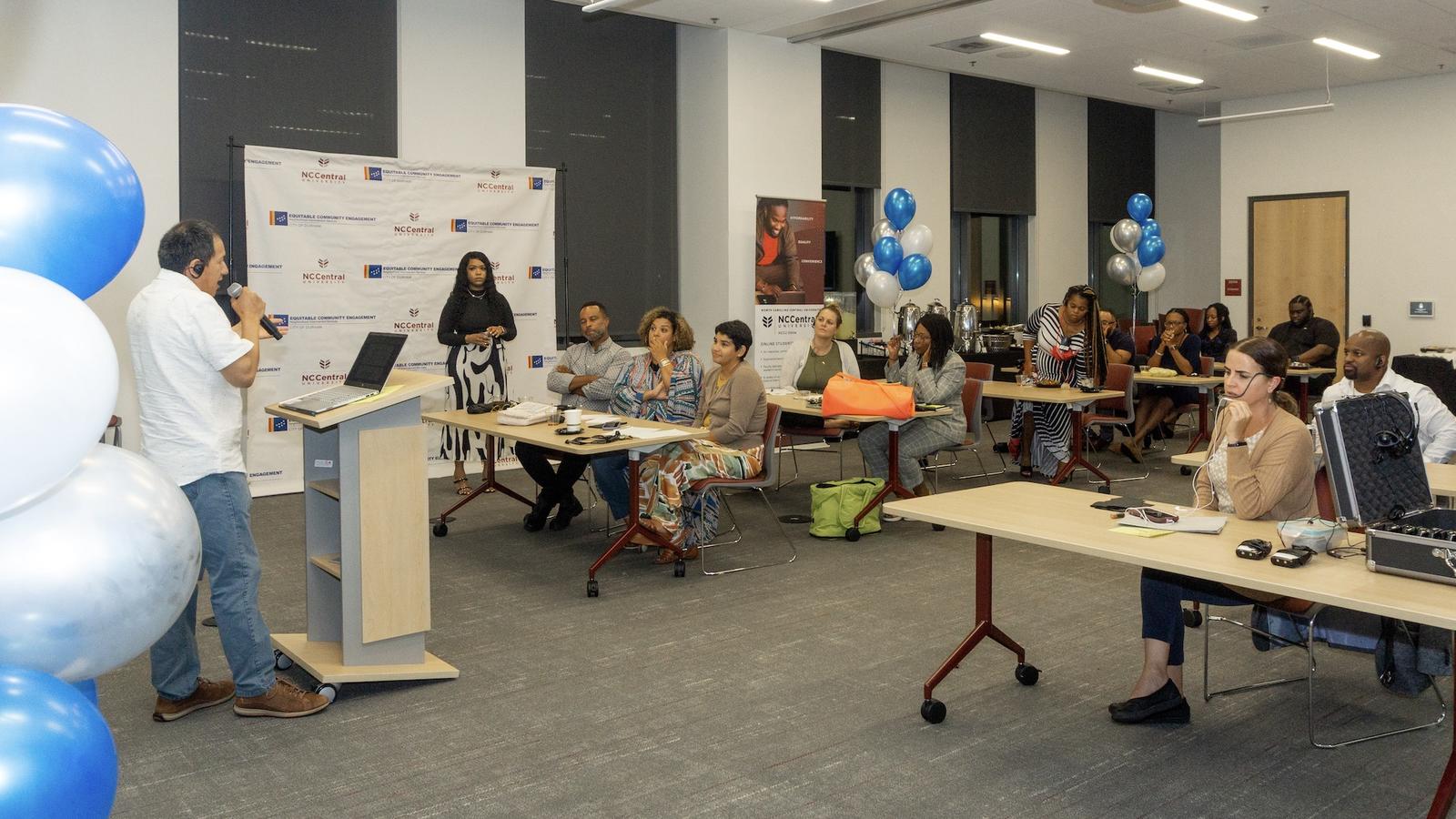By Mark Lawton
Joy Harrell Goff, ’98, of Durham became executive director of BUMP the Triangle, a nonprofit that brings African diasporic arts and culture to the Triangle area, particularly to young people.
In her new role, Goff wanted to revamp programming, serve more people and learn how to raise more money.
“When I became executive director, we had a budget of $11,000 for the whole year,” Goff said. That money came from a foundation grant which BUMP the Triangle had inherited from Goff’s predecessor.
Goff began learning how to write grants but it was a challenge. “I was able to get some money from grant writing but not much,” Goff said. “I was also struggling to know where to apply for an arts organization.”
Enter the Community Partners Development program at North Carolina Central University (NCCU). The noncredit certificate program was originally designed by the city of Durham, then redesigned by NCCU with faculty input.
The program is funded by the city, jointly taught by the city and university and held virtually or physically at NCCU. The first cohort was taught March to August 2022, then repeated in 2023.
Community Partners Development’s first priority is to help people at the grass roots level to realize their ideas for their communities and respond to requests for proposals, said Clayton Mack, associate director of NCCU Extended Studies, which oversees the certificate program.
Every class included a guest speaker who discusses topics such as sources of data and how to interpret it, creating business plans, leadership teamwork, budgets, responding to requests for proposals (RFPs), marketing and communication, developing an elevator pitch, what tasks to outsource, mock interviews and asking for enough money.
During the last class, participants present a proposal in front of three judges. Graduation takes place during a meeting of the Durham City Council, Farrington said.
The course is free to class participants who have a range of interests including helping homeless women, young people, military veterans and arts.
The participants are “low-wealth residents and residents from historically underserved communities,” said Delta Farrington, community partnerships manager for the city of Durham. It is open to both city and Durham County residents.
“Joy, she has been in the nonprofit space for a long time and was hitting a wall about going after the big dollars and forging relationships to fuel her passion,” said Mack.
Goff took part in the first cohort in 2022. She developed relationships, clarified her ‘ask’ when applying for grants and learned how to create a strategy for building relationships in the Durham communities BUMP the Triangle wants to serve. including East Durham, Braggtown and the West End.
And then there was the money. With her increased knowledge of grant writing, Goff applied for American Rescue Plan funding through Durham County. She was awarded a grant for $150,000 over two years. The first installment was paid in August 2023.
“We are able to support more artists and more youth,” Goff said. “Our goal is to support 100 youth by 2024. I am able to give myself a meager salary.”
Ashley Robbins also took part in the 2022 cohort. She works at Wake Technical Community College, where she helps students with disabilities obtain software and hardware to have access to education.
“I have been looking for ways to combine some of my education and my professional experiences and my experience in community engagement,” Robbins said. “My ultimate goal is to provide consultant services for governments and nonprofit organizations. To make sure that folks are making their programming accessible, particularly for disabled people and transportation. I took the course to get a little more direction on how to implement those things.”
Robbins served as an accessibility advisor in the Fayetteville Street Corridor Fellows projects, a community group that used arts to promote community engagement. Part of her work involved making the Hayti Heritage Center more accessible.
She has also worked with the city of Durham on transportation plans. “To make sure that people whose voices have been historically excluded from decision making were able to provide feedback,” Robbins said.
Robbins found the Community Partners Development course useful. “I learned how to respond to requests for proposals and requests for quotation,” she said. “I don’t always feel I know where to get funding for my ideas. This course gave me some direction.”

